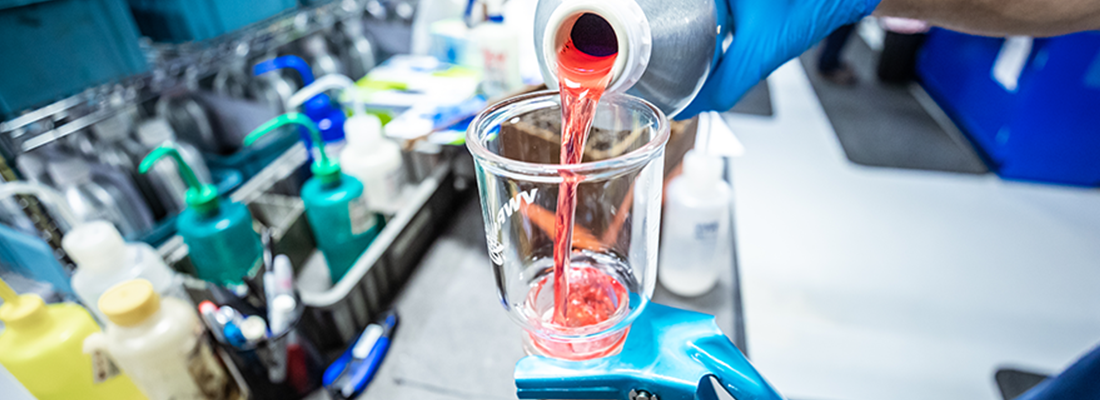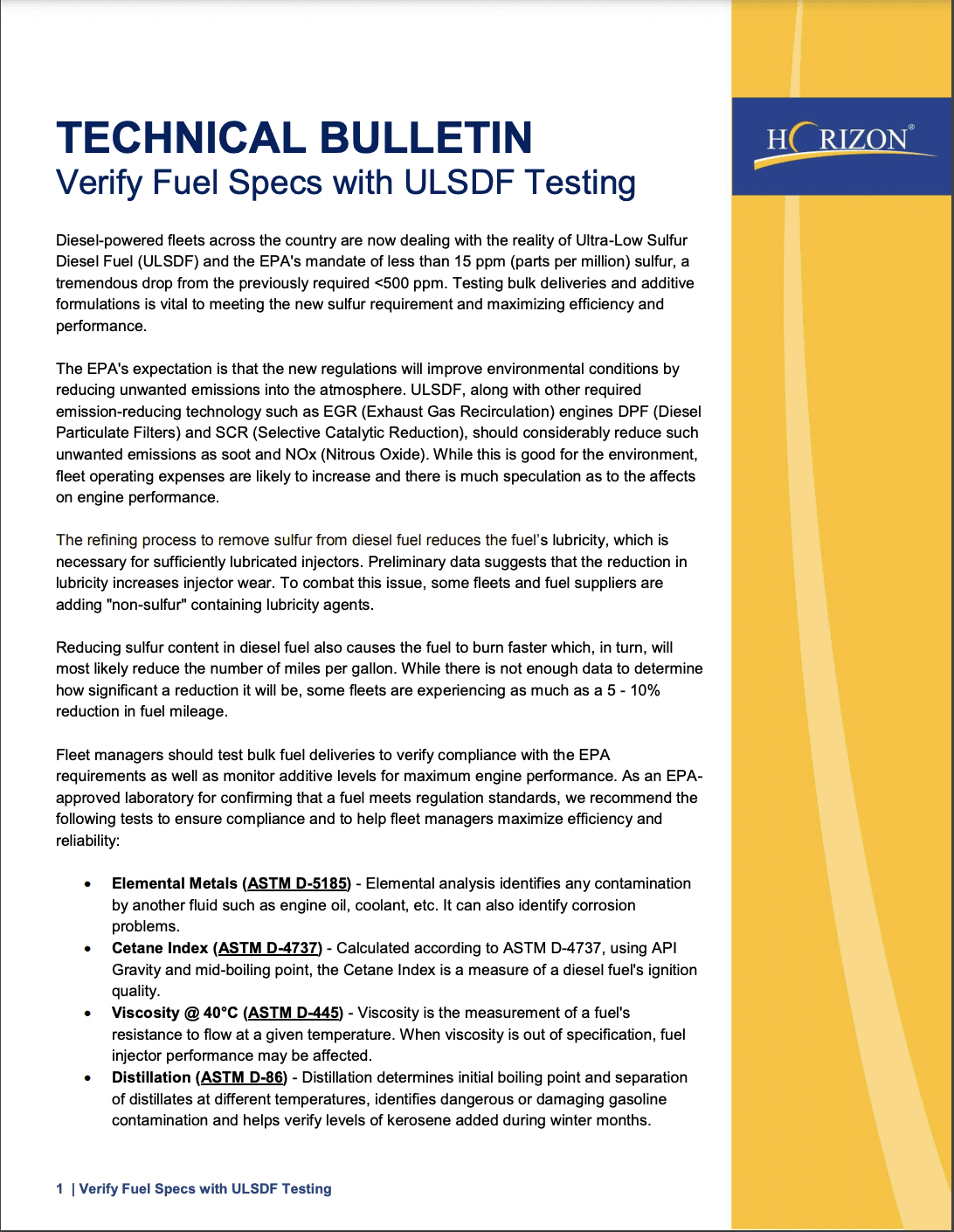Determining Degradation in Your Fuel

Fuel prices have been at an all-time low, the global pandemic had slowed down the economy, winter’s grip is lessening, you have weathered 2020 … has your fuel?
Fuel can degrade in storage while waiting for use and environmental conditions, water and bio duel blends can accelerate that degradation in your fuels.
What Is Diesel Fuel Degradation?
All diesel fuel degrades. The oxidative instability in diesel fuel creates fuel degradation materials like sediments and acids. These materials can result in hard particulate formation, corrosion, filter clogging and damage to fuel pumps and injector through deposits. The consequences can include increased maintenance issues, poor fuel economy, diminished performance and poor combustion quality resulting in issues like black smoke and difficulty starting, or even complete mechanical failure.
How to Avoid Diesel Fuel Degradation?
Most times, you’re not aware of how long your fuel may have been in storage, whether it’s for a short or considerable amount of time, the potential for fuel degradation is increasing.
What steps can you take to avoid or minimize it? It starts with understanding your fuels current state.
- Test Your Fuel | Testing can help you know where your fuel stands. Understanding water contamination, biodiesel levels, cleanliness levels and degradation tendencies of the fuel.
- Understand Your Storage Tank Levels | Low fuel levels in a storage tank allows the formation of condensate. When you top off your diesel fuel storage tank, make sure you leave about 10-15 percent space on the top to minimize the condensation and to allow your fuel to react safely with changes in temperature.
- Keep a clean tank | Ensure draining your tank of settled water or clean your tank regularly so that there are fewer particles present that can cause a reaction with hour fuel.
To learn more about keeping your fuel clean, monitor degradation and keep it in usable condition, see our Technical Bulletin Verify Fuel Specs with ULSDF Testing, linked below.

Proven Impact. Proven Uptime. Proven Savings.
Let us prove it to you.




